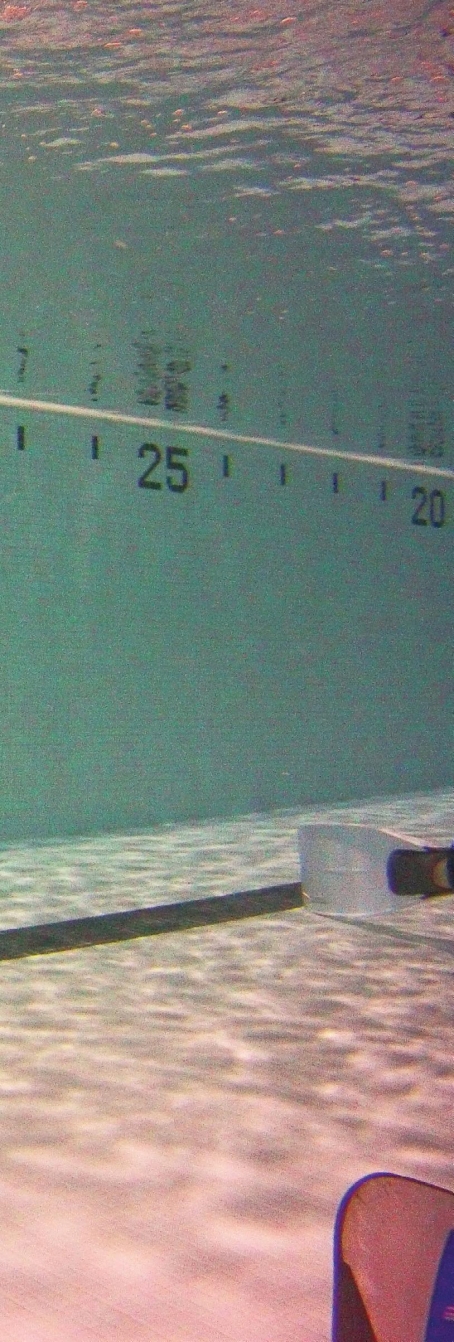
WATER POWER: Diveheart Executive Director and Advanced Adaptive dive buddy and divemaster Tinamarie Hernandez is with Mateo, an adaptive diver that has a heart condition. Scuba is the one activity that he can do without stressing his heart. Scuba is a great activity for Mateo because it puts him in a zero gravity environment where he can move easily at his own pace without stressing his heart like so many other physical activities might do.
WHAT IS ADAPTIVE SCUBA DIVING?
Adaptive scuba diving is a program that provides scuba diving experiences to people with disabilities. The program adapts the diving experience to an individual diver's needs, making it accessible to people who experience a wide range of disabilities, including physical, cognitive, and sensory impairments. Adaptive scuba diving programs typically include specialized: training, equipment, and support from professionals trained in adaptive scuba.
THE THERAPEUTIC BENEFITS OF ADAPTIVE SCUBA DIVING
Improves Physical Health: Scuba diving is an excellent form of exercise that can improve cardiovascular health, increase muscle strength and flexibility, and improve respiratory function. Adaptive scuba diving can provide additional benefits for people with disabilities, by improving their range of motion, increasing circulation, and improving overall physical fitness. This exercise can be beneficial for those with chronic pain, cerebral palsy, spinal cord injuries, and multiple sclerosis.
Boosts Mental Health: Scuba diving can also positively impact mental health by reducing stress and anxiety, improving mood, and promoting relaxation. For people with disabilities, adaptive scuba diving can provide a sense of freedom, independence, and control, that may be difficult to achieve on land. Similar to doing meditation, scuba diving requires focusing on your breath, emptying your mind of distractions, and being present at the moment. The sensation of weightlessness, the ability to move freely in the water, and an atmosphere of sensory deprivation can be therapeutic for people with conditions such as autism, PTSD, and anxiety disorders. The sensation of weightlessness, the ability to move freely in the water, and the benefits of escaping from the typical surface triggers that might irritate or set off someone with autism, PTSD and anxiety disorders.
Sensory deprivation rooms, weighted blankets and pressure vests are a type of therapy often used to help sooth those with autism.
Increases Confidence: Adaptive scuba diving can also help boost confidence by providing a sense of accomplishment and
achievement. Learning to scuba dive requires focus, determination, and perseverance. Completing a dive can be a significant confidence booster for people with disabilities. This experience can be beneficial for children with disabilities, who struggle with low self-esteem and confidence. They've done something only a small percentage of the population has done. According to the Diving Equipment & Marketing Association (DEMA), there were approximately 6.4 million scuba divers in the United States in 2019 (Dema, 2021). The total U.S. population at that time was estimated at around 328 million (U.S. Census Bureau, 2019). This translates to approximately 1.9% of the population. This confidence boost can spill over into other areas of their life. Adaptive scuba diving often helps children with disabilities identify as something other than their disability. It's no longer Johnny in a wheelchair, it's Johnny the scuba diver.
Provides Social Connections: Adaptive scuba diving can also provide opportunities for social connections and new friendships. Children with disabilities are often less likely to participate in community youth activities because of physical or cognitive limitations. Scuba diving is a team activity, and divers must work together to ensure everyone's safety and success. This activity can create a sense of camaraderie and support among divers. Spending time with a diverse group of people and feeling included can be especially meaningful for children with disabilities, who may feel isolated or disconnected from others.
Increases Sense of Adventure: Finally, adaptive scuba diving can provide a sense of adventure and excitement that may be difficult to find in other activities. Just floating in zero gravity can be exhilarating. In a pool, there are underwater games and activities for adaptive divers. Open-water diving offers a world full of fascinating creatures and landscapes. For children with disabilities, adaptive scuba diving can provide a sense of wonder and curiosity that will have them thinking about what they can do instead of what they cannot do.
HOW TO GET INVOLVED IN ADAPTIVE SCUBA DIVING
There are several options if you want your child to participate in adaptive scuba diving. Many scuba diving organizations